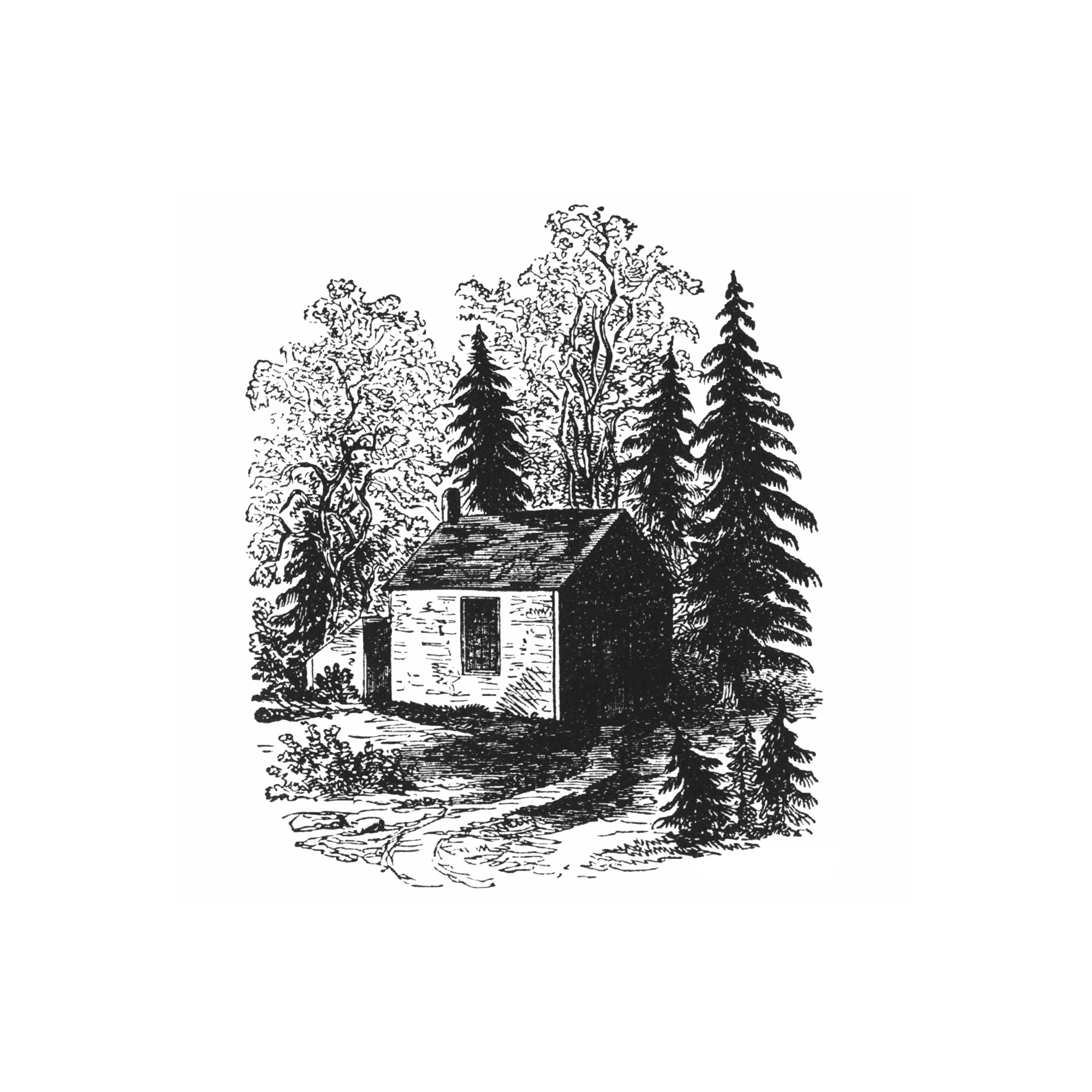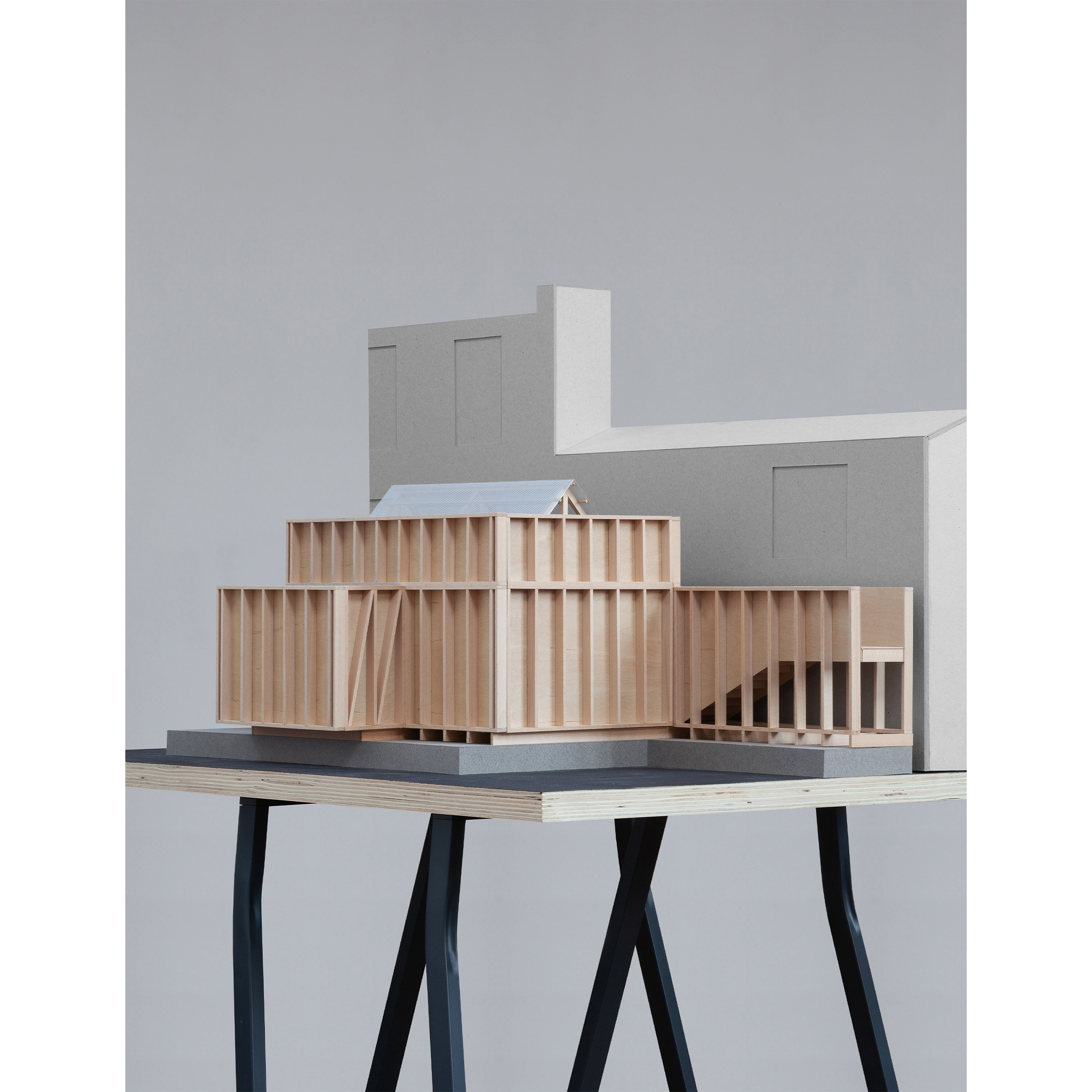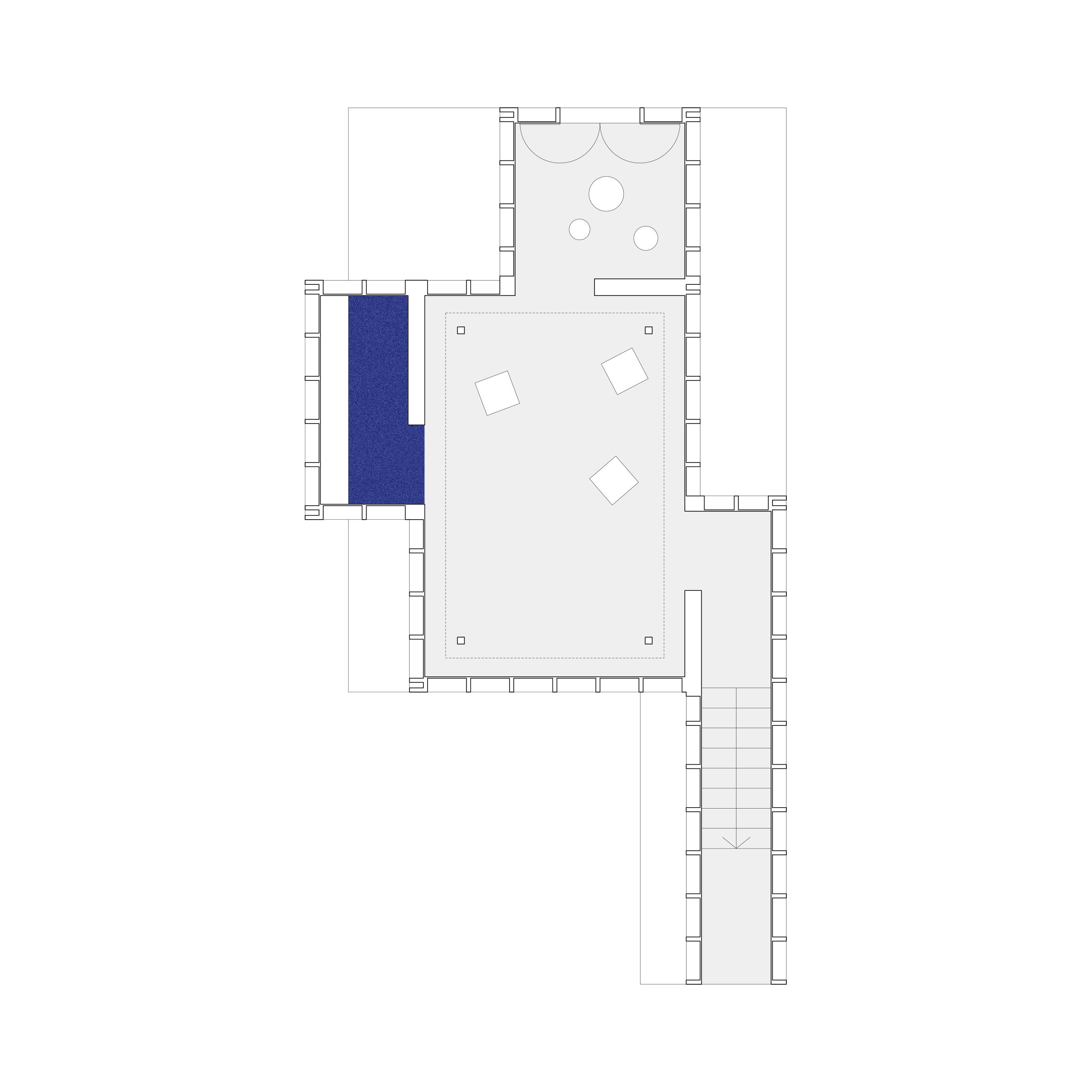





011 WALDEN
COMPETITION
2019
COMPETITION
2019
‘I went into the woods because I
wished to live deliberately, to front only the essential facts of life, and see
if I could not learn what it had to teach, and not, when I came to die,
discover that I had not lived’
So wrote Henry David Thoreau in his book Walden, an account of the American essayist and philosopher’s time spent in self-imposed exile from society in the mid-nineteenth century. Thoreau’s book examines themes that resonate acutely with some of the most urgent issues of our own time - and it is from his impassioned writing that this pavilion draws inspiration.
Resting on a configuration of seven floating pontoons on a stretch of Regent’s Canal in East London, the proposed structure is composed of three rooms and a staircase. The largest of these accommodates a simplified reconstruction of Thoreau’s cabin - a timber frame covered lightly by a roof of perforated metal, scaled in precise accordance with the measurements of the house in which he lived for two years by the shores of Walden Pond in Concord, Massachusetts.
Three chairs - ‘one for solitude, two for friendship, three for society’ - are placed within the house, acting to promote conversation between users of the pavilion. A second room, its surfaces painted blue, is sized to accommodate a single occupant and projects from the pontoon to reveal the surface of the canal. Roofless, it exposes the occupant to the sky and is intended as a space in which to read and meditate, practices Thoreau observed on a daily basis throughout his life. The third space, a box room with a shuttered window, is conceived as a garden - a space in which to nurture plant life and contemplate the condition of our natural world.
Walden is proposed as a meeting house within which a programme of public events - lectures, debates, recitals and film screenings - may take place, with the aim of reappraising Thoreau’s ideas and considering their significance and potential applicability to our fragile world today.
So wrote Henry David Thoreau in his book Walden, an account of the American essayist and philosopher’s time spent in self-imposed exile from society in the mid-nineteenth century. Thoreau’s book examines themes that resonate acutely with some of the most urgent issues of our own time - and it is from his impassioned writing that this pavilion draws inspiration.
Resting on a configuration of seven floating pontoons on a stretch of Regent’s Canal in East London, the proposed structure is composed of three rooms and a staircase. The largest of these accommodates a simplified reconstruction of Thoreau’s cabin - a timber frame covered lightly by a roof of perforated metal, scaled in precise accordance with the measurements of the house in which he lived for two years by the shores of Walden Pond in Concord, Massachusetts.
Three chairs - ‘one for solitude, two for friendship, three for society’ - are placed within the house, acting to promote conversation between users of the pavilion. A second room, its surfaces painted blue, is sized to accommodate a single occupant and projects from the pontoon to reveal the surface of the canal. Roofless, it exposes the occupant to the sky and is intended as a space in which to read and meditate, practices Thoreau observed on a daily basis throughout his life. The third space, a box room with a shuttered window, is conceived as a garden - a space in which to nurture plant life and contemplate the condition of our natural world.
Walden is proposed as a meeting house within which a programme of public events - lectures, debates, recitals and film screenings - may take place, with the aim of reappraising Thoreau’s ideas and considering their significance and potential applicability to our fragile world today.